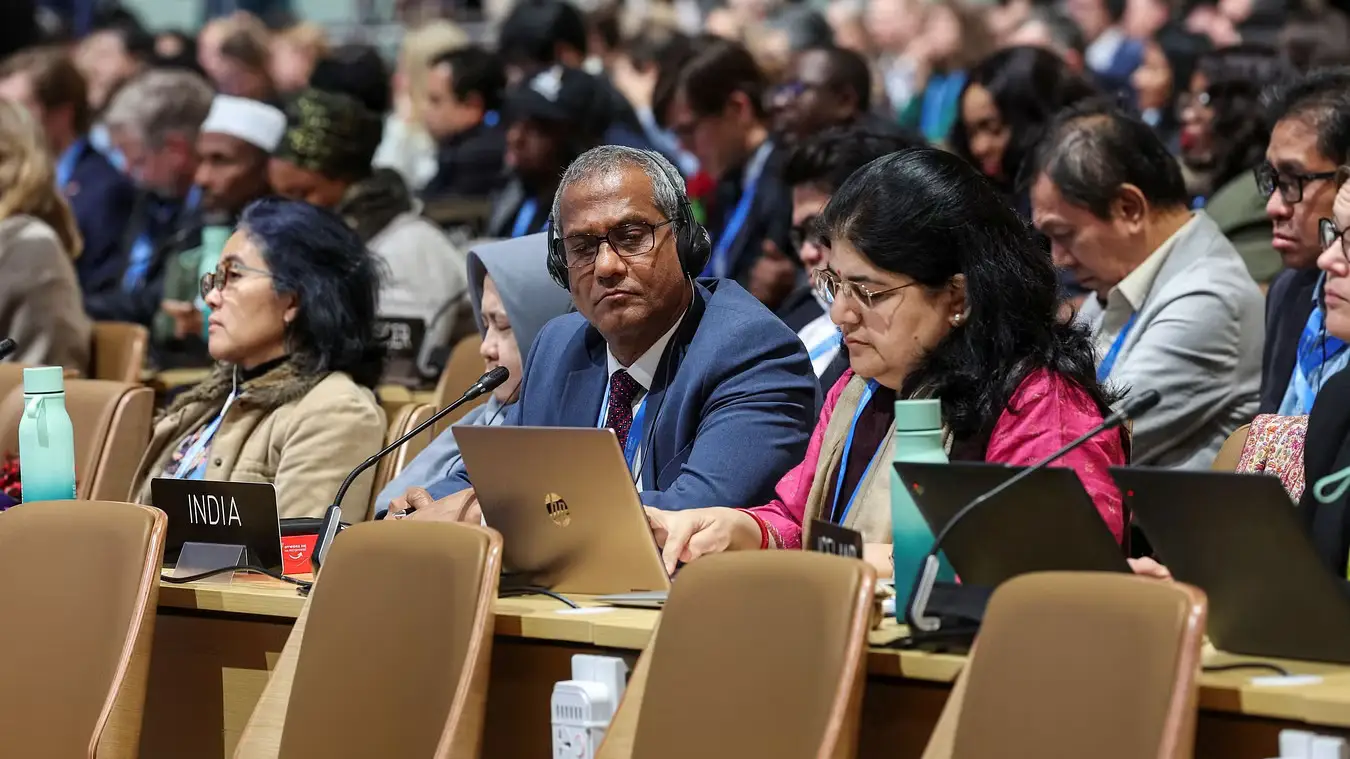India Takes a Firm Stand at COP29: Advocating for Equitable Climate Finance

The COP29 climate summit in Baku, Azerbaijan, has concluded, marking a pivotal moment in global climate negotiations. Leaders, climate advocates, and activists from across the globe gathered to address pressing environmental challenges. Among the most significant developments was India’s firm rejection of the New Collective Quantified Goal (NCQG), underlining its advocacy for the Global South and equitable climate finance.
Leading India’s delegation, Chandni Raina strongly opposed the NCQG decision, which proposed $300 billion annually by 2035 for climate finance in developing nations. Calling the figure inadequate and misaligned with the realities of the Global South, Raina also criticized the decision’s adoption process, citing procedural lapses that excluded India from contributing to the discussion. “We are extremely disappointed. Trust is the foundation for meaningful action, and this incident reflects a deep lack of trust,” Raina said, highlighting the erosion of transparency and inclusivity in climate negotiations.
The NCQG decision is part of the “Baku to Belém Roadmap to 1.3T,” which aims to mobilize $1.3 trillion in climate finance by 2035. However, India and other developing nations argued that this roadmap fails to address the growing financial needs of vulnerable countries adequately. They emphasized that equitable climate finance should be based on the principle of shared but differentiated responsibilities and respective capabilities. India’s stance resonated with other Global South nations, including Nigeria and members of the Like-Minded Developing Countries (LMDC) coalition. Together, they called for a more transparent, inclusive, and ambitious approach to climate finance that truly reflects the challenges of the developing world.
Despite rejecting the NCQG framework, India reaffirmed its unwavering commitment to climate action under the Paris Agreement. India emphasized the necessity of trust and collaboration among nations to effectively combat climate change, positioning itself as a critical voice for developing countries. India’s leadership at COP29 also highlighted the growing urgency to ensure that climate action aligns with the realities of the Global South, where developmental priorities and adaptation needs remain paramount.
India’s stance extended beyond financial inadequacies. It emphasized the urgent need to address the health consequences of climate change. Rising temperatures, worsening air pollution, and extreme weather events have amplified health challenges, including respiratory illnesses, heat-related conditions, and the spread of infectious diseases. India urged greater integration of health considerations into climate policies. Proposals included investments in resilient healthcare infrastructure, adoption of clean energy in health facilities, and sustainable practices that benefit both the environment and public health.
A critical outcome of COP29 was the strengthening of the Guiding Principles for Financing Climate and Health Solutions, providing a framework for national-level partnerships. Discussions highlighted the need to mobilize resources and technical expertise to build resilient health systems capable of adapting to climate-related crises. Success stories of integrated health and climate strategies were shared, showcasing scalable approaches that could be adopted globally. Public-private partnerships and innovative financing models were also discussed to sustain climate-health initiatives.
Roundtable discussions at COP29 fostered dialogue among governments, international organizations, and financial institutions, promoting global partnerships to address the intertwined crises of climate change and public health. These collaborations aim to deliver tangible results, particularly for vulnerable nations.
India’s decisive actions at COP29 have amplified calls for an inclusive and representative global dialogue on climate finance. By rejecting an inadequate framework, India has reaffirmed the need for solutions that genuinely address the needs of the Global South. As the outcomes of COP29 shape the trajectory of global climate action, India’s advocacy for equitable finance and integrated health policies provides a roadmap for a sustainable and healthier future for all.
